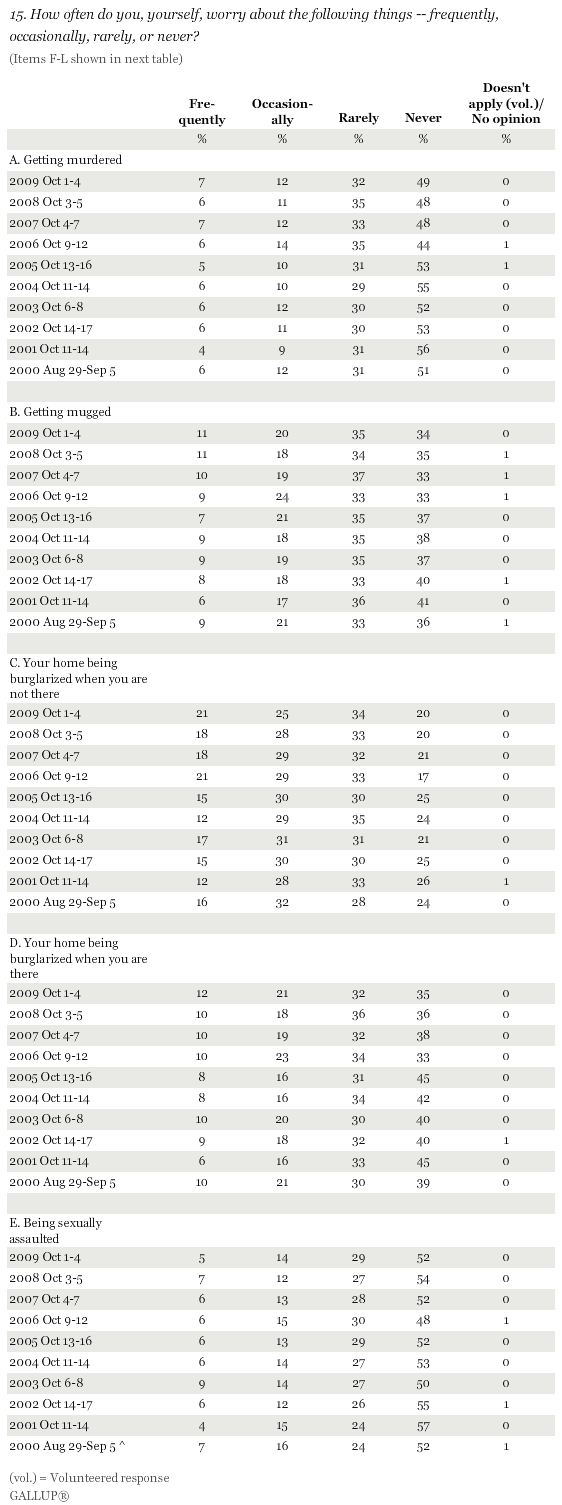PRINCETON, NJ -- Identity theft debuts on Gallup's Crime survey as Americans' top-ranked crime concern. Sixty-six percent of U.S. adults say they worry "frequently" or "occasionally" about being a victim of identity theft, higher than the reported anxiety about 11 other types of crime and the only crime that a majority worry about at least occasionally.
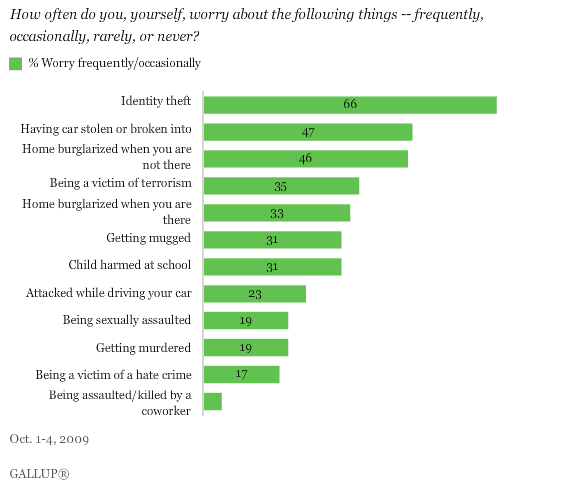
Gallup trends measuring Americans' fear of being victims of specific crimes date back several decades, but for each of 10 crimes, the question has been updated annually on Gallup's Crime survey since 2000. Terrorism was added to the list in 2001, and 2009 marks the first year identity theft has been included.
"Among those who appear concerned about identity theft, 31% worry frequently -- the highest level for any crime rated in 2009 -- and 35% worry occasionally."
Just under half of Americans worry frequently or occasionally about having their cars stolen or broken into (47%), as well as about having their homes burglarized when they are not there (46%). Roughly a third worry about being terrorism victims, having their homes burglarized when they are there, having their school-aged children physically harmed while attending school, and getting mugged.
Around 20% worry at least occasionally about being attacked while driving, being murdered, sexually assaulted, or being a hate-crime victim. Workplace violence places a distant last on the list, with 4% of all Americans saying this is something they worry about either frequently or occasionally. Even among employed Americans, the rate of worry on this item is a low 6%.
Gallup trends show little change over the past year in how much Americans worry about any of the different types of crime.
One example is the trend on fear of being a victim of terrorism. The 35% currently saying they frequently or occasionally worry about this is statistically similar to the levels recorded in 2007 and 2008.
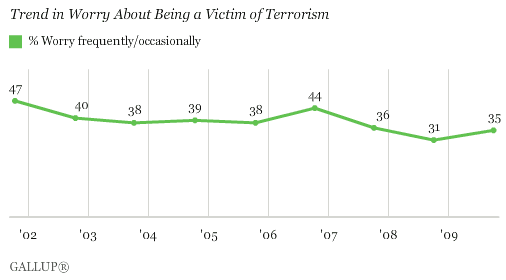
Widespread Worry About Identity Theft
Among those who appear concerned about identity theft, 31% worry frequently -- the highest level for any crime rated in 2009 -- and 35% worry occasionally. Another 18% of Americans rarely worry about it, while 15% -- the lowest for any crime -- say they never worry.
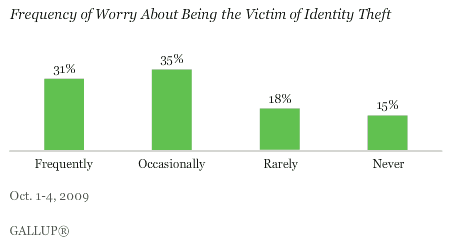
Men and women are about equally likely to say they worry about identity theft, but there are differences by income. Americans in households earning less than $30,000 per year are significantly less likely to say they worry frequently or occasionally about this crime than are those making higher amounts.
However, other data in the Oct. 1-4 survey suggest that identity theft is not related to income. According to respondents' self-reports of their crime victimization in the past year, 12% of low-income Americans -- identical to the percentage in high-income households -- say that they or another member of their household was the victim of identity theft in the past year.
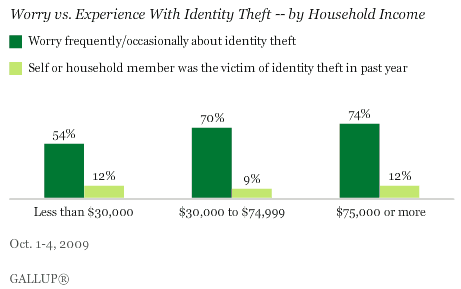
Americans report experiencing identity theft far less than they report worrying about it. Overall, 10% of all Americans say that they or another household member was the victim of identity theft in the past 12 months. This is slightly less than the 14% who say their household had a home, car, or other property vandalized, and the 16% who say money or property was stolen from their household. Fewer report that anyone in their household was the victim of a computer or an Internet crime (7%), had their apartment or home broken into (5%), or had a car stolen (3%). Even smaller percentages (1% to 2%) report having been victimized by various violent crimes.
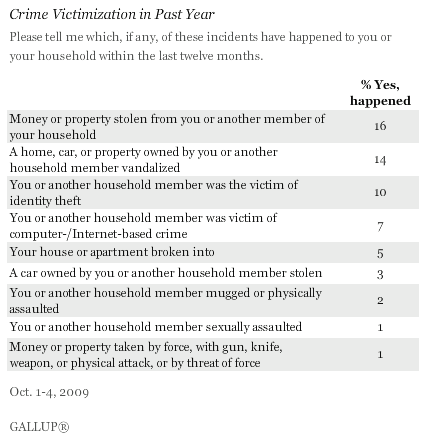
Bottom Line
In 2009, identity theft is a top-of-mind crime for 66% of Americans, far more concerning to them than the typical violent crimes. One reason for the high level of worry about identity theft may be the spotlight that both lawmakers and identity-protection companies have turned on it. Although most victims can quickly undo the damage by canceling their credit cards, examples of people who have spent months or years trying to restore their credit or good name seem to have had an impact on Americans.
The high level of worry about identity theft is underscored by the much lower degrees of worry seen for other crimes -- some of which may be more likely to happen.
Survey Methods
Results are based on telephone interviews with 1,013 national adults, aged 18 and older, conducted Oct. 1-4, 2009. For results based on the total sample of national adults, one can say with 95% confidence that the maximum margin of sampling error is ±4 percentage points.
Interviews are conducted with respondents on land-line telephones (for respondents with a land-line telephone) and cellular phones (for respondents who are cell-phone only).
In addition to sampling error, question wording and practical difficulties in conducting surveys can introduce error or bias into the findings of public opinion polls.
